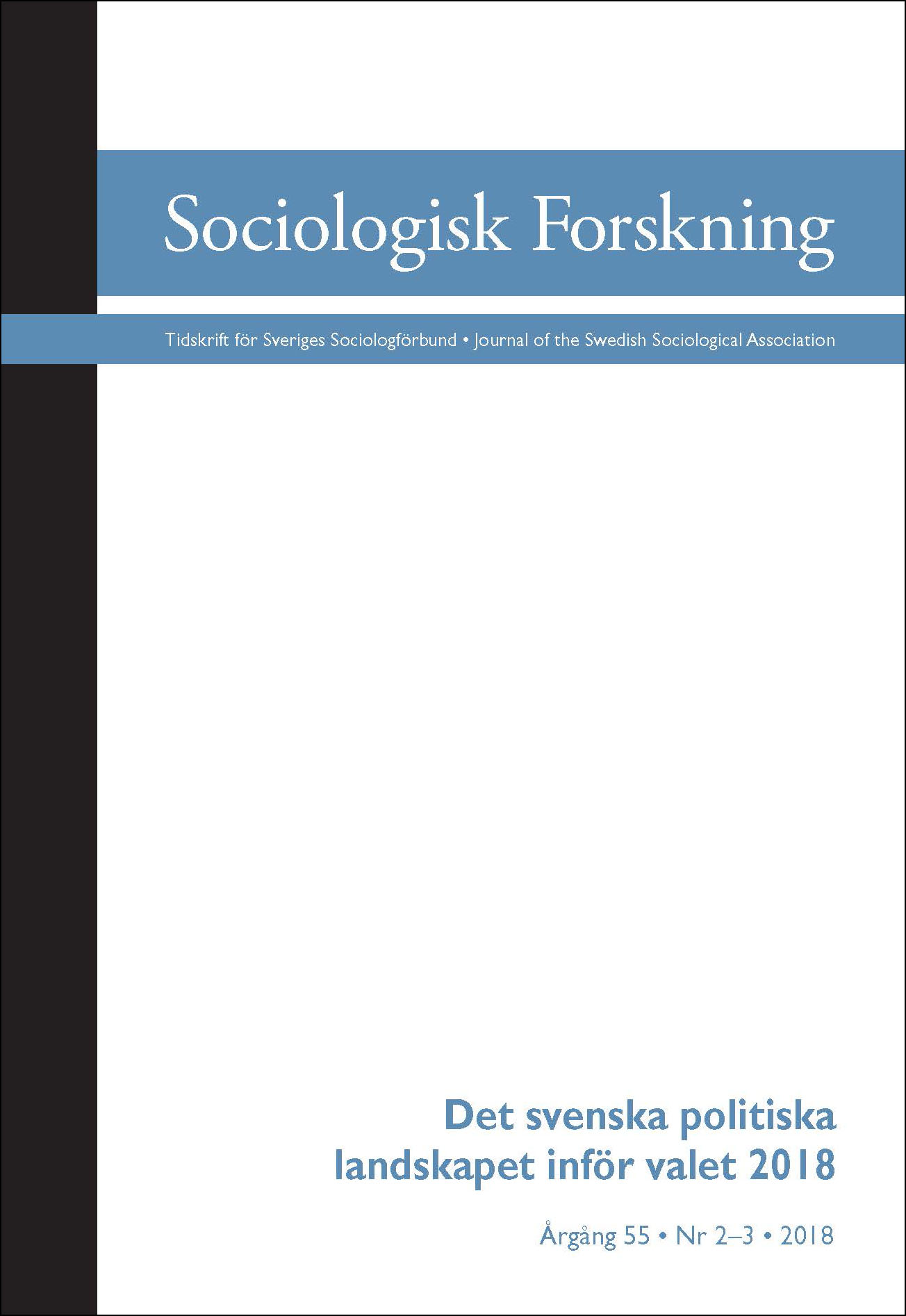The institutionalization of a new social cleavage
Ideological influences, main reforms and social inequalityoutcomes of “the new work strategy”
DOI:
https://doi.org/10.37062/sf.55.18188Nyckelord:
the new work strategy, Sweden, de-universalization, outsiderhood, work-first, consolidation stateAbstract
The objective of this article is to analyse the ideological influences, main reforms and social inequality outcomes of “the new work strategy”, i.e. the former Swedish centre-right Alliance government’s work-first approach. By studying government bills and reports, official statistics, and research on welfare and labour market policies, discourses, policy measures and their outcomes have been analysed. The main conclusion is that Sweden, the former prototypical “social democratic” welfare state, has adopted a new institutional framework for social protection that we call a “work-first, consolidation state”. The reforms aimed at shrinking the welfare state were implemented by strengthening activation principles in social protection systems as well as a politics of lowering taxes, which has institutionalized a new social cleavage in Swedish society and resulted in a massive redistribution from the public sector to the private sector. We also discuss how the transformation of labour income taxes and social protection systems was legitimized by the Alliance’s discourse on “outsiderhood”, and one ideological influence is located in American discourses of the underclass.
Downloads
Publicerad
Referera så här
Nummer
Sektion
Licens
Allt material i Sociologisk Forskning publiceras med omedelbar öppen tillgång (open access), under Creative Commons-licensen CC BY-NC-ND 4.0.
Allt innehåll i tidskriften är fritt tillgängligt utan kostnad och får för icke-kommersiella syften fritt läsas, laddas ned, kopieras, delas, skrivas ut och länkas. Innehållet får dock inte ändras. När innehållet används måste författare och källa anges. Upphovsrätten till innehållet tillhör respektive författare. Inga publiceringsavgifter tas ut.





